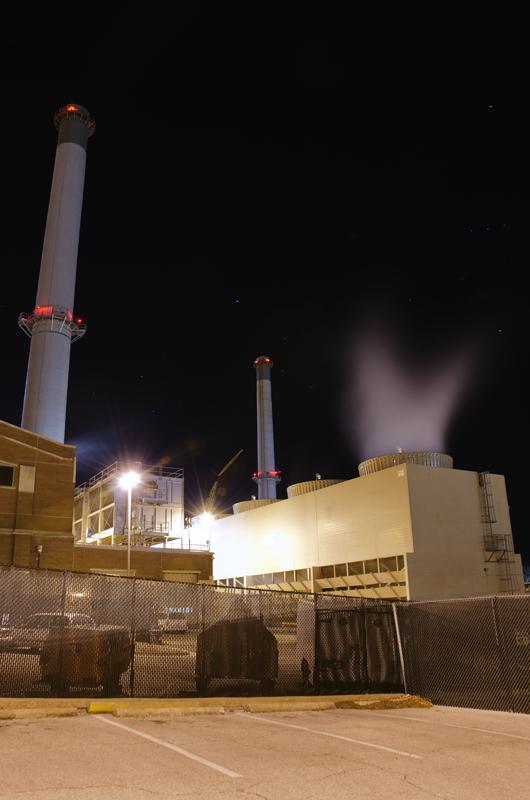
Because of new EPA regulation, the City of Columbia will be running an assessment to decide the fate of the Municipal Power Plant come April.
Connie Kacprowicz, a utility services specialist at Columbia Water and Light, said the plant is currently meeting regulations, but generators could need to be replaced or upgraded.
“The two generators are fifty plus years old,” Kacprowicz said in an email. “Aside from their age, there are new greenhouse gas regulations that will go into effect. These regulations have been talked about for years but have been delayed. They are now supposed to go into effect.”
Third Ward City Councilor Gary Kespohl said in an email that the plant does not currently have equipment to meet the future EPA standards for treating emissions.
“We will be assessing those standards and costs associated with bringing that plant to federal standards,” Kespohl said.
The assessment will look at the cost effectiveness of upgrading the plant and will hopefully answer whether it would be more effective to maintain the plant versus purchasing power off the grid, Kacprowicz said.
“The assessment completed this spring will help answer those questions,” Kacprowicz said. “Aside from the cost the utility also has to look at reliability requirements of the federal government. It is possible to purchase power on the wholesale markets but you never know what the future will bring as far as prices.”
The assessment will also determine the costs of replacing or rebuilding the generators at the power plant. Since the data is unknown, no decisions have been made on what to do with the plant or its employees, who, according to Kespohl, will maintain and operate the non solid-fuel-fired fuel sources.
“As with all large scale capital investments, the council will want to look at the cost benefit analysis before deciding what to do,” Kacprowicz said. “Once the assessment is completed, both cost and the reliability standards along with potential future regulations will be considered for all the generators at the plant.”
Kacprowicz said if the plant is closed for renovations, electric consumption will be lowest in the spring. She also said if need be, power can be bought from outside sources such as Midwest Independent System Operator. Kespohl added that units can be upgraded separately.
“If the plant requires upgrades in some of the units, we can keep other units operating while these upgrades are being done,” Kespohl said.
The city is also looking into renewable energy, with a February report stating Columbia will try to have 15 percent of electricity sales be from renewable energy sources by Dec. 31, 2022. The city recently added a wind contract and is developing more solar energy, along with an extra generator added to the landfill gas plant in the spring.
“The city has a policy to use sustainable energy based on a percentage of total power,” Kespohl said in regard to the renewable energy. “We currently are meeting that goal and are always looking for alternative energy forms to meet or exceed those goals.”
The regulations in question are being put in place to reduce emissions of sulfur dioxide, nitrogen oxides and other toxins to reduce ozone and fine-particle pollution.
According to a study by the National Economic Research Associates, Missouri is one of the most coal-dependent states and could be one of the hardest hit states under new regulations.